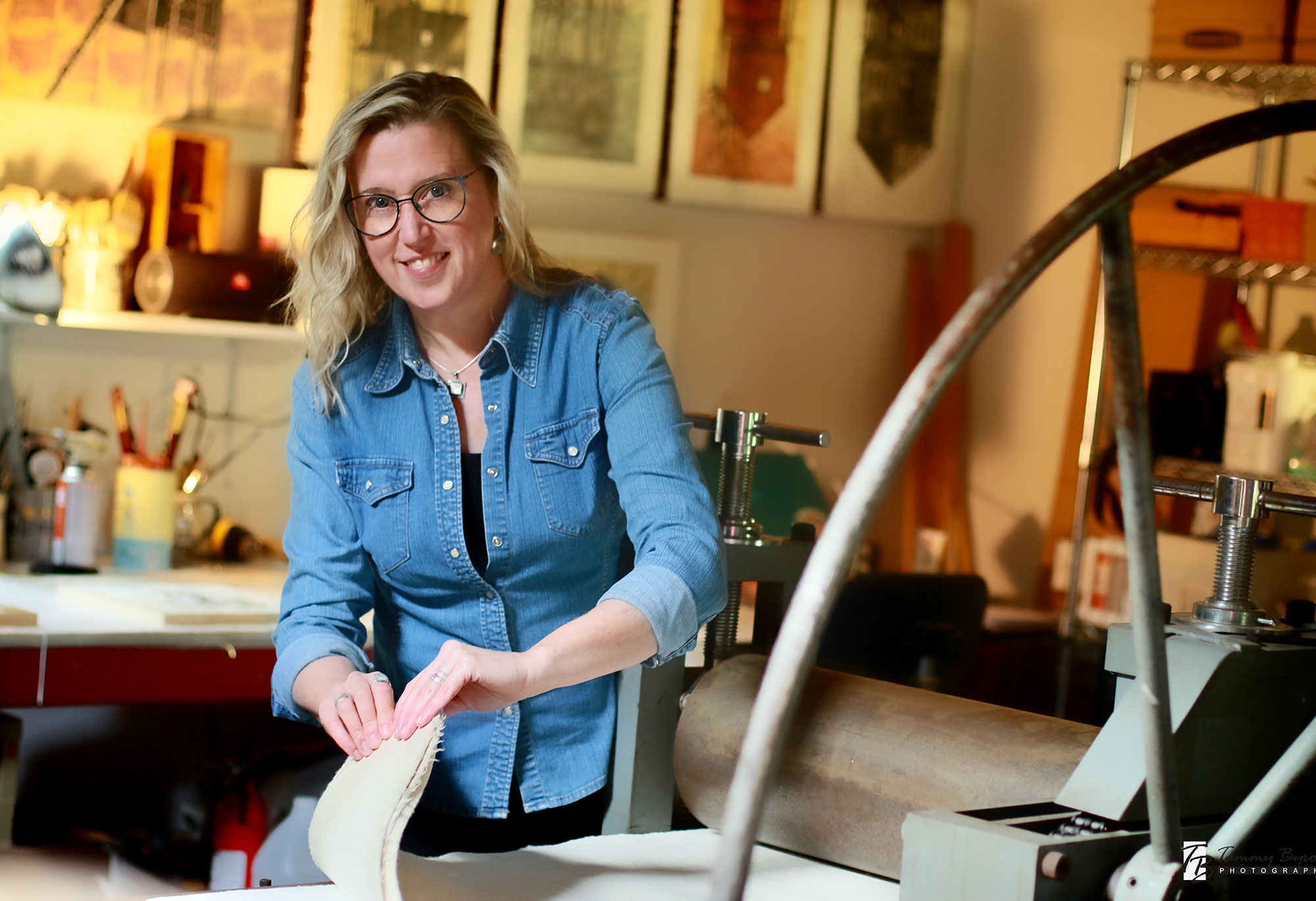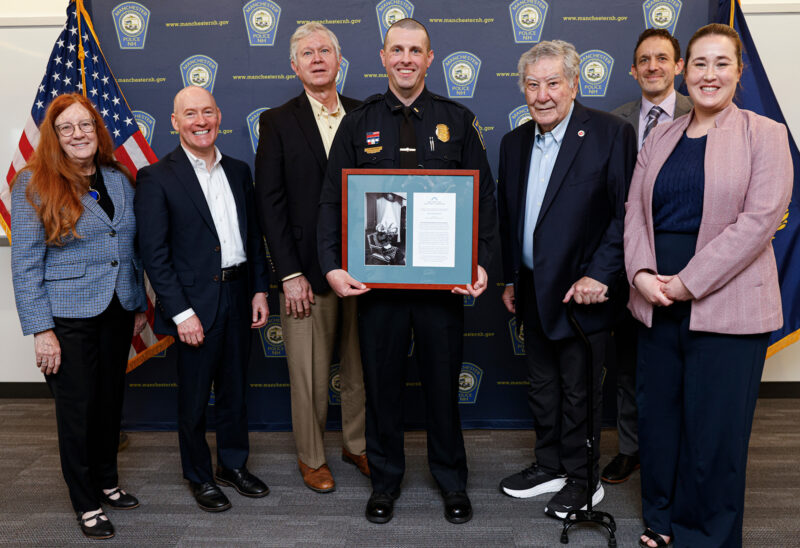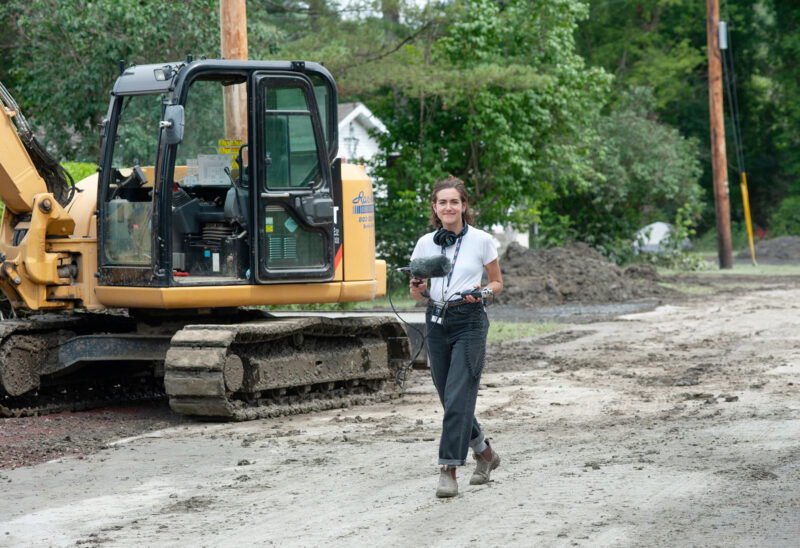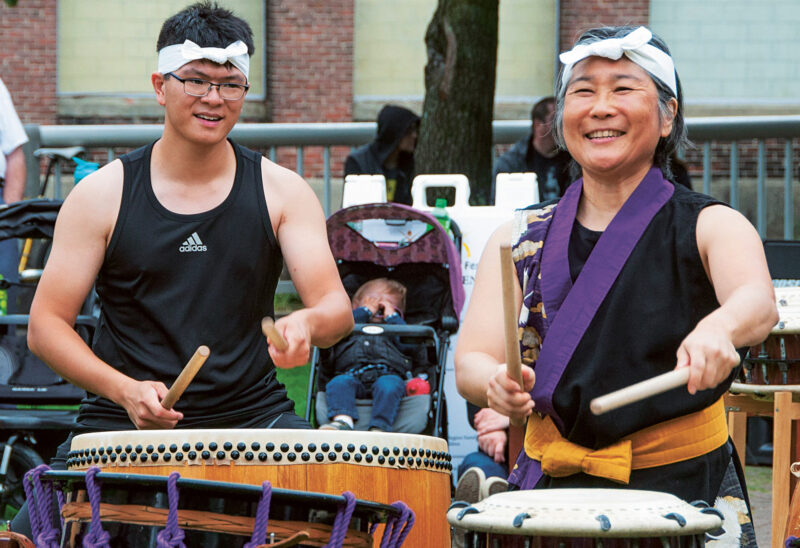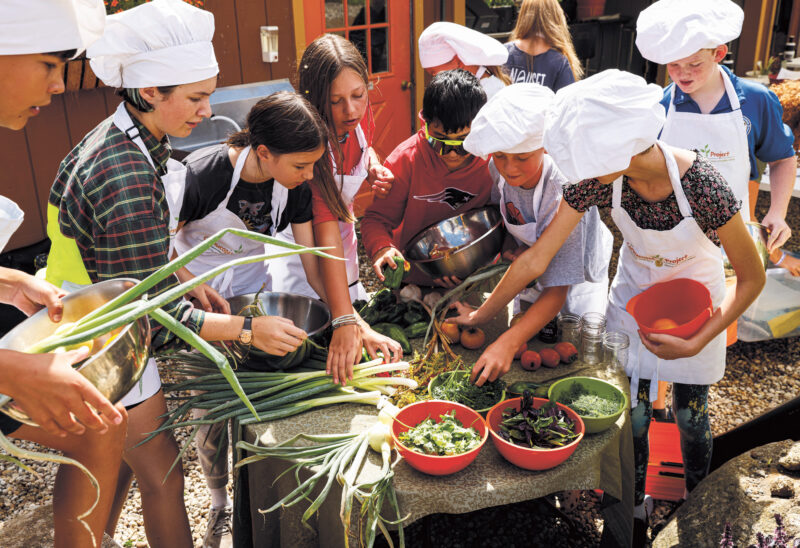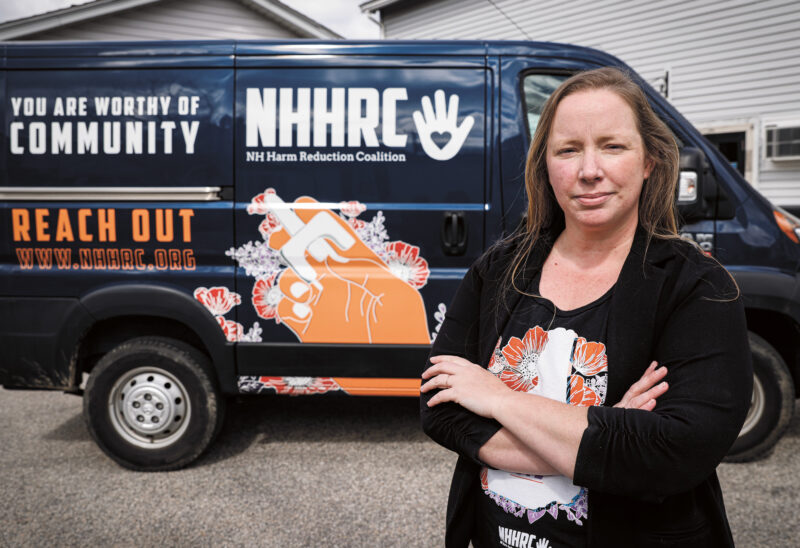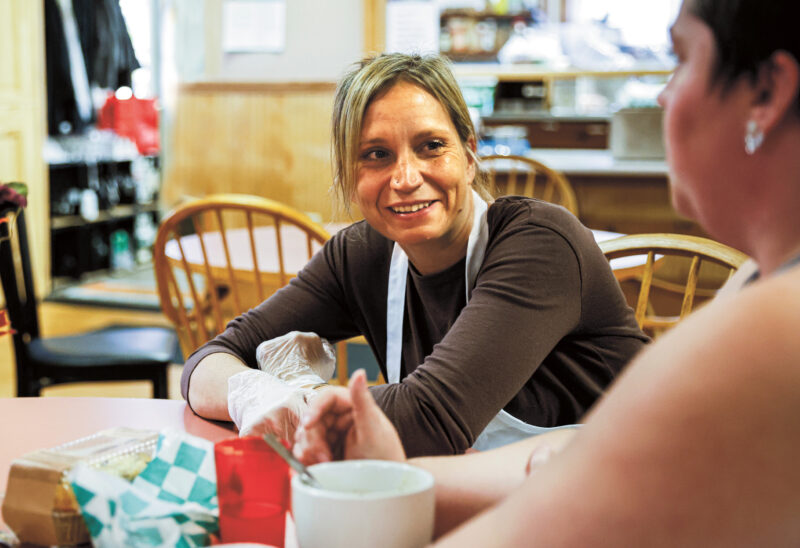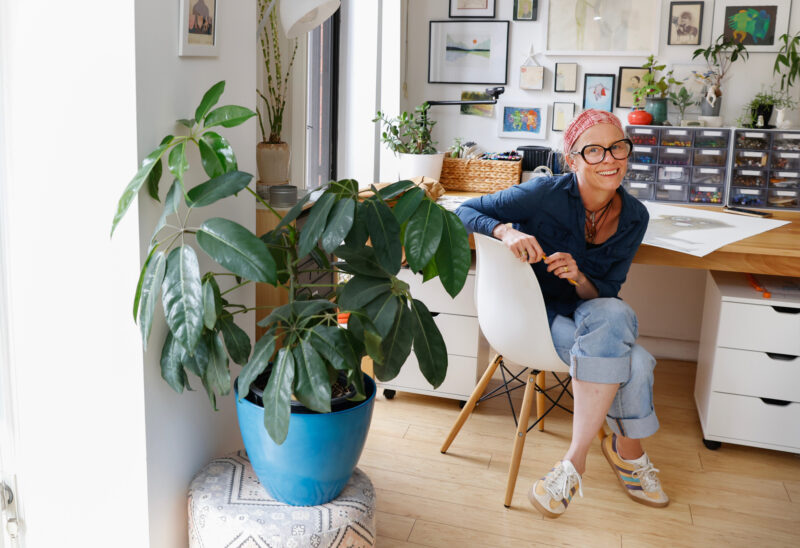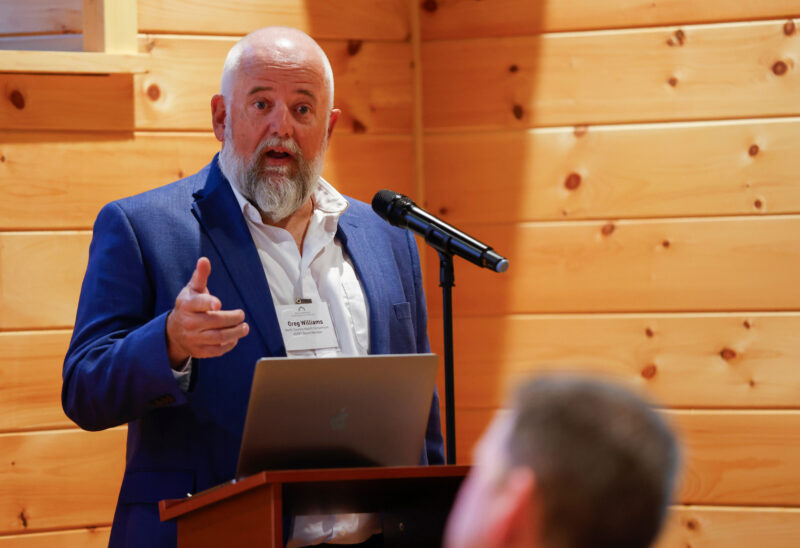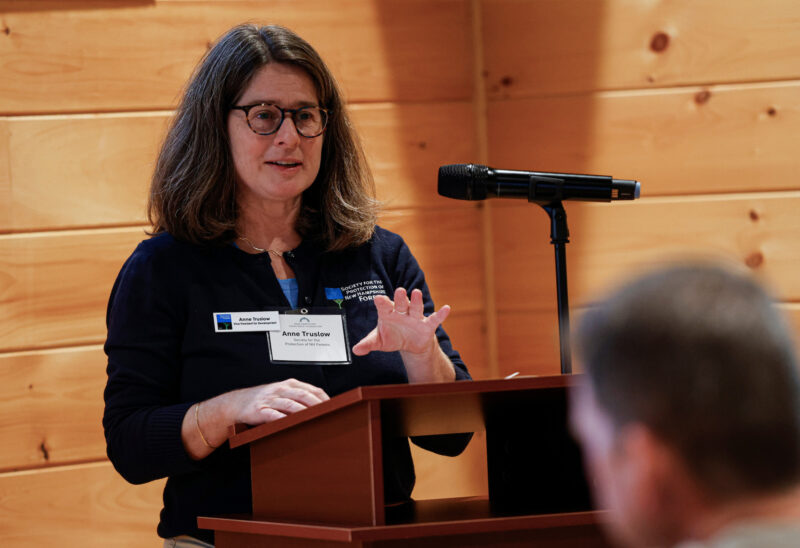Kate Knox enjoys driving the backroads of New England in search of treasure: run-down barns and other structural ruins whose decaying shells hint at their past grandeur.
“They are like giant wooden tombstones or archeological ruins that we can explore now,” she said. “We don’t have to wait to dig them up in a thousand years.”
Toting her camera and sometimes climbing through creaking beams, Knox imagines what each structure once was, captures in photographs what they are now, then designs woodblock print collages that create new structures in an alternative reality.
“I liberate them before they disappear into their inevitable future, subverting destiny in a way, and reroute them into a newly imagined future, surrealistic and illusionary,” she said.
Knox sees a “heartbreaking stoicism” in collapsing structures.
“It’s like watching someone who has always been strong and proud whither and get old. It both repels and attracts. I wallow in the paradox,” she said.
Knox said the 2021 Piscataqua Region Artist Advancement Grant from the New Hampshire Charitable Foundation gives her the gift of time to turn her passion into a full-time pursuit, instead of fitting it into nights and weekends.
“So much of my work is literally just showing up to it, being present and just seeing what happens,” she said. “There is a certain state of mind that goes with that and if you are all caught up in your day, it’s hard to be present to anything. This grant will allow me to give all of my creative energy to this work.”
The annual $25,000 Artist Advancement Grant is one of the largest unrestricted grants awarded to a single artist in the country. It was created at the Charitable Foundation by generous people who wanted to cultivate the region’s arts community, boost artists’ careers and help keep artists living and working in the area. Finalists in 2021 were Bianca Mireles of Portsmouth; Shaina Gates of Exeter; and Matt Gunn of York Harbor, Maine, who each received $1,000.
In her work, Knox combines artistic creativity with a life-long fascination with mechanical problem-solving and structure.
“I was always the kid who liked to take things apart and put them back together in new ways,” she said.
She sketches from photographs of various structures (her own photos and those she receives from others), then arranges multiple sketches on a table where “they seem to talk to each other.”
“This one would be fantastic if it had that one’s windows. This one looks so sad, but how hopeful could it be if it stood on that one’s legs,” she said.
She makes new sketches that mix and match the details, carves them into blocks of wood, inks and prints the blocks, then lays the prints out again to repeat the process of observing how various elements might come together in a newly imagined structure.
She then embeds these new constructions in beeswax on raised birch panels, creating a result that combines strength and vulnerability, new and old materials, and new and old techniques — using history as a springboard to create an alternative future.
She’s also begun experimenting with creating patterns out of the structures, printing a wallpaper of sorts with tiny woodblocks of dilapidated buildings — “prettifying the decrepitude.”
“I have liberated these structures from their reality and I am using them to explore the impossible,” she said. Knox said her work is based on transformation, transience and transcendence.
“Everything is s so short-lived, everything,” she said. “We are just blips.”
For her, the falling-down buildings are stuck in a timeline.
“I have captured them for a second and I am taking them from what they were into what they impossibly could become, holding onto that fleeting moment and exploring the boundaries of art with it,” she said. “You want to remember that moment and what it did to your imagination and then take it as far as it will go.”
Knox’s formal artistic journey started relatively late in life. She entered art school in her 30s, beginning her future travels down back roads with a walk down the street in her Dover neighborhood. There, she watched as the pre-Revolutionary Dunn Tavern was taken apart, beam-by-beam, stone-by-stone. She meticulously cataloged the process from the inside after the contractor allowed her to climb through the building during the project.
“It set my imagination on fire,” she said. “It became the basis for all of my work.
With the Artist Advancement Grant, Knox looks forward to having time to further hone her methods, research and expand her market and give back to her community.
She plans to continue her practice of sharing her work at substance misuse recovery locations and with people with developmental disabilities. She also hopes to work with students who have a passion for arts and could benefit from an adult mentor — “to be the person I wished for in my life when I was young and baffled by a world that thought nothing like me.”
Knox’s previous jobs contribute to her work. Her experience renovating and reselling homes helped improve her understanding of structure, but tending bar was a constant lesson in her three T’s — transformation, transience and transcendence.
“It was studying people — watching them get stuck, watching them transcend or not transcend their lives, watching them turn from one thing into another,” she said.
“It was like trying to let go of stereotypes or what you think is going to happen or what something is when you look at it — then digging deeper,” she said.
Just like walking through the ruins of an old barn.

